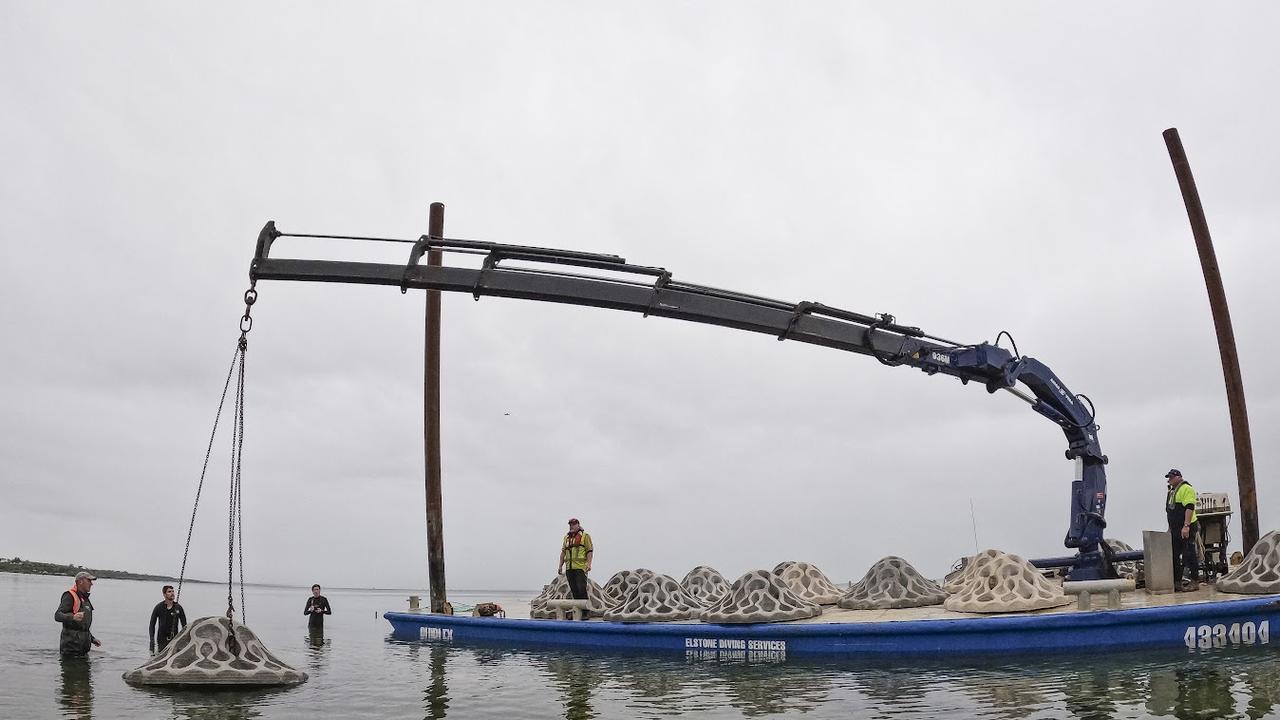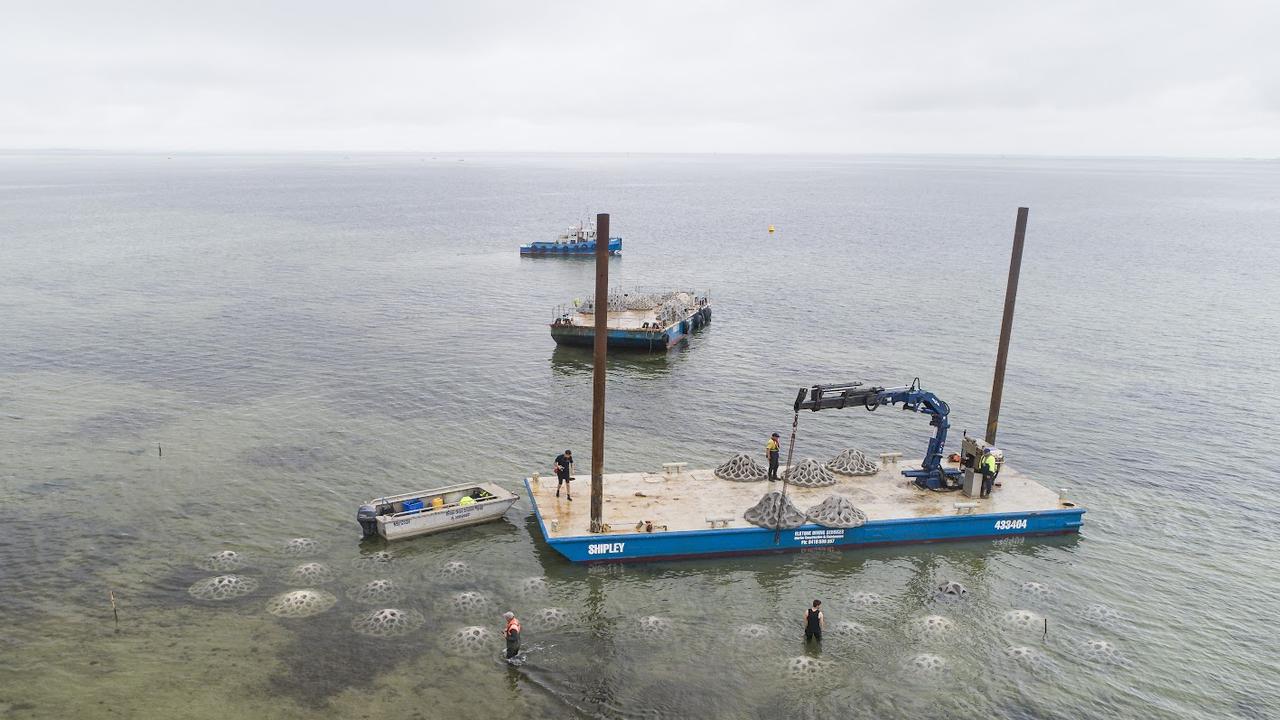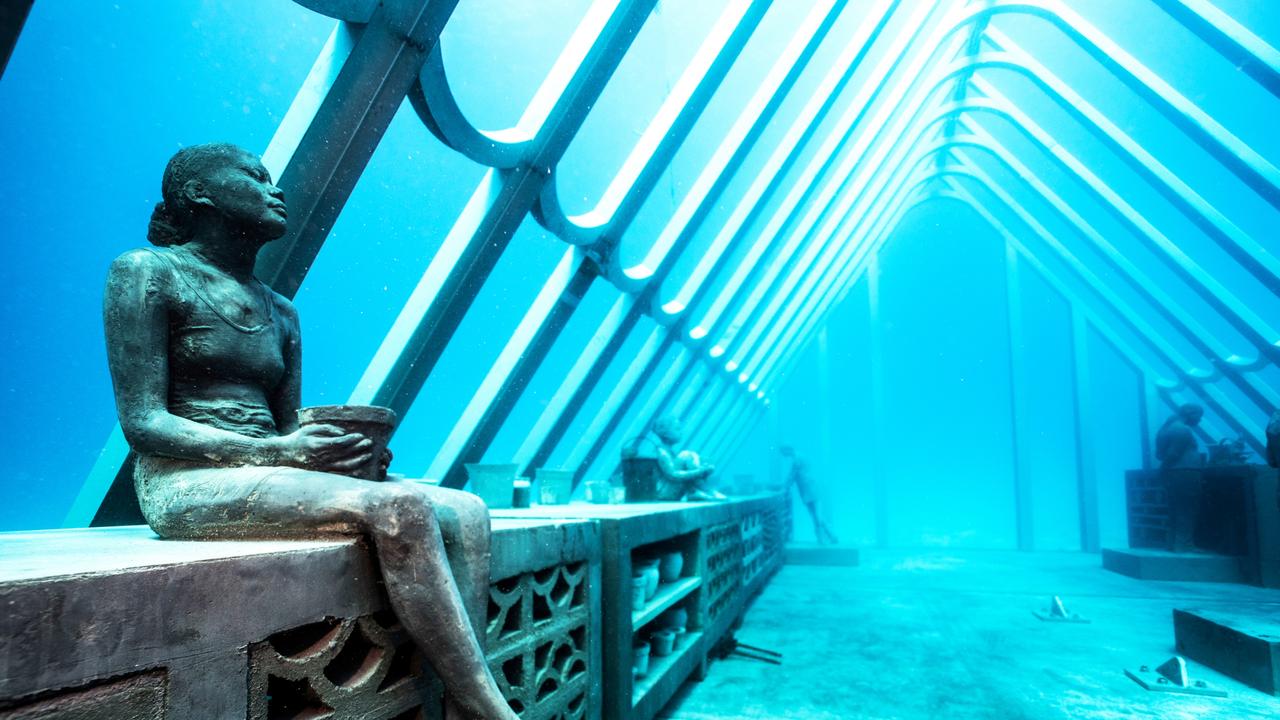Delayed, scaled back Clifton Springs reef finally installed
Initially pitched as a $1m tourism-drawing Sunken Gallery, a scaled back artifical reef has finally been installed.

Geelong
Don't miss out on the headlines from Geelong. Followed categories will be added to My News.
Installation of an artificial reef of marine sculptures, previously pitched as a Sunken Gallery, has finally started following years of delays.
The City of Greater Geelong’s troubled Clifton Springs project was supposed to be an underwater masterpiece filled with 10 underwater sculptures to draw divers from across Australia and abroad.
The project, pitched in 2017, was initially expected to cost more than $1m — and was allocated $500,000 across the city’s 2017-18, 2018-19 and 2019-20 budgets.
Following repeated delays, that project was scrapped in January last year and replaced with a scaled back Dell Eco Reef project.
The $250,000 project will be made up of 46 reef units, the first of which were installed at The Dell on Wednesday morning.

Council said, once complete, the project would enhance The Dell’s natural assets and would be completed sensitively to protect native marine life.
It is hoped that fish, mussels and seaweed will colonise in the artificial reef.
The attraction can be accessed by either wading or snorkelling as it is exposed at low tide and
submerged at high tide.
It was designed and manufactured by Alex Goad from Melbourne-based company Reef Lab Designs.
Mr Goad said the attraction will benefit the local marine environment and create a unique wave break system to protect the coastline from eroding.
“A deep understanding of how these intertidal ecosystems work has allowed us to … provide much needed wave break protection and also deliver a sculptural system that will enhance the beauty of the coast,” he said.

Geelong mayor Peter Murrihy said the reef is a unique feature of the region that will draw visitors to the beach.
“The project fuses elements of sculptures, technology and ecology to deliver a visually striking addition to the Bellarine,” he said.
The University of Melbourne and the National Centre for Coasts and Climate will seed some reef units with native flat oysters as well as monitoring the natural colonisation of native species within the artificial reef.
More Coverage
Originally published as Delayed, scaled back Clifton Springs reef finally installed





